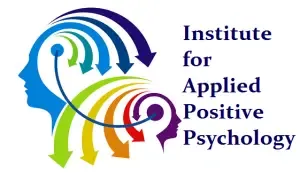Masters of Applied Positive Psychology: The MAPP Program
 Interested in pursuing your love of positive psychology further? Good news—in recent years, we’ve seen more and more opportunities arise for developing that interest academically.
Interested in pursuing your love of positive psychology further? Good news—in recent years, we’ve seen more and more opportunities arise for developing that interest academically.
On this page, we’ve listed MAPP (or relevant related) opportunities from a wide range of institutions across the world. For those who can’t find something locally in this list, we’ve also included excellent Distant learning options.
And, to reflect the manifold applications of Positive Psychology—in education, social work, therapy, counseling, and more—we’ve included how the different Positive Psychology MAPPs aim to cover specific subfields.
Before you read on, we thought you might like to download our three Positive Psychology Exercises for free. These science-based exercises will explore fundamental aspects of positive psychology including strengths, values, and self-compassion, and will give you the tools to enhance the wellbeing of your clients, students, or employees.
This Article Contains:
How to Acquire Certification or a Degree
Different Certificates, Diplomas, and qualifications are available for all kinds of graduates and professionals who want to study Positive Psychology. Besides the more general ‘Positive Psychology Diplomas’ and similar, there are certificates and qualifications around the world that focus on what we just referred to as ‘subfields’.
More strictly speaking, there is a range of disciplines in which PP approaches and tools provide value, such as teaching (Positive Education), sports (Positive Coaching), and more.
It is possible to apply online for most of the Positive Psychology study options we have encountered; on this site, we also have a list of Positive Psychology courses that are being updated all the time.
What’s right for you will depend on your level of interest, prior experience, and available time to commit, but the Masters of Applied Positive Psychology is one option that is growing in popularity.
Master’s of Applied Positive Psychology
As with most other Master’s programs, universities offering a MAPP will often accept applicants who have either relevant professional experience or a Bachelor’s degree. Some will require that this undergraduate degree is from a related field, while others don’t have this prerequisite.
- Economics;
- Law;
- Healthcare;
- Business; and more.
Is a Degree or Work Experience Essential?
If you would prefer not to apply on the basis of your Bachelor’s degree or work experience, you may want to try out a less demanding postgraduate pathway first. Of course, that isn’t to say the content will be vastly different, but there are postgraduate study options which aren’t as time-intensive as a Master’s.
Several of the MAPP opportunities listed here are offered by institutions that also run postgraduate diplomas or certificates; Angela Ruskin University and New Buckinghamshire University are two examples. The credits earned from successfully completing one of these qualifications may well be transferrable over to a MAPP if you wish to continue on later down the line.
Master of Applied Positive Psychology (MAPP)
As opposed to a Masters of Positive Psychology, a Masters of Applied Psychology (MAPP) program is designed to impart more of the practical skills, tools, and knowledge that can be applied straight away. An MSc in Positive Psychology, on the other hand, will often be more theory-focused; it will often be structured so that students learn about the key thinking that has shaped—and continues to shape—the field.
Both, of course, consider evidence, interventions, and theories of key PP topics: wellbeing, mindfulness, happiness, strengths, flourishing, and more. A MAPP, however, is more about applying theoretical and research-based insights in your professional practice. As an example, the University of Pennsylvania has the longest running, and one of the most famous, MAPP programs worldwide.
Applied Positive Psychology at UPenn
The University of Pennsylvania (UPenn) is home to the world’s very first MAPP program and it has no defined course prerequisites. Martin Seligman, one of the field’s founding fathers, helped to establish this course and sits on the faculty team.
The Applied focus of this degree means that course covers the tools and techniques for Positive Psychology interventions, potentially for a whole range of interdisciplinary applications.
The eight modules are:
- Introduction to Positive Psychology;
- Research Methods and Evaluation;
- Foundations of Positive Interventions;
- Perspectives on Wellbeing;
- Positive Psychology and Individuals;
- Humanities and Human Flourishing;
- Positive Education; and
- Applying Positive Psychology Interventions in Institutions.
New applicants can join during the Fall semester, which starts in September and runs for five weeks. The course boasts a hybrid structure, which means that one week of on-site learning each month is followed by distance learning modules until the next month’s on-site.
After completing the core modules, students complete a capstone project, an opportunity to apply the knowledge learned in their research or professional settings.
Details:
- Entry Requirement: A Bachelor’s from an accredited institution, with a GPA of 3.0 overall. Applicants must also provide evidence of analytical and quantitative skills from prior coursework or an exam.
- Where: On-site sessions at UPenn, Philadelphia Campus, plus distant learning modules.
- Dates: Spring 2023 start
- Duration: One year
- Price: $71,784 (2023 Summer fees applicable to change)
Find out more about UPenn’s MAPP at the official website.
Master of Applied Positive Psychology virtual information
Study Options in the UK and Europe
If you are based in the UK and looking for a MAPP opportunity near you, here are some great options from accredited institutions. These include the University of East London’s MAPPCP, Angela Ruskin University, and Buckinghamshire New University.
Applied Positive Psychology and Coaching Psychology at UEL
This program is a Masters of Science (MSc) that can be studied either by distance learning or on-site at the University of East London (UEL).
This course also goes by the acronym MAPPCP—Master of Positive Psychology and Coaching Psychology. The UEL is the first institution in the world to offer this unique combination of specializations, having combined elements from two of its other Master’s programs.
In this respect, the course offers an original approach which synthesizes theory and research for applied, modern training on wellbeing.
There are 8 core modules covering both research-based aspects and practical coaching elements:
- Perspectives on Wellbeing
- Multidimensional Flourishing
- The Search for Something Higher
- The Practice of Evidence-based Coaching
- Coaching in Professional Contexts 1
- Developing a Professional Coaching Practice
- Research Methods and Dissertation 1
- Research Methods and Dissertation 2
Three are coaching modules, two are research methods-based, and a further three are focused on Positive Psychology. Students will learn not only about key topics such as motivation, goal-setting, and cognition but also about how these overlap with one another and with the coaching aspects taught.
Details:
- Entry Requirement: A degree, preferably Social Sciences-based, with a minimum of 2.1 honors.
- Where: Campus-based in London or online for distance learning.
- Dates: January 2023 & September 2023
- Duration: One year
- Price: UK or EU applicants £11,760 (full-time) or £1,960 per module (part-time); International applicants £15,480 (full-time only). Distance learning fees are module-only, at £2,580 for international and UK/EU applicants.
Access more details on the Masters program here.
Anglia Ruskin University: Applied Positive Psychology MSc
Anglia Ruskin’s MAPP is for applicants who want to use positive psychology in a wide range of fields. That includes training, civil service, life coaching, industrial/organizational settings, education, healthcare, NGO, or social work fields.
Counselors and therapists interested in applying the relevant theory or approaches in their practices can also pursue this Masters, which is assessed entirely by completing coursework. Like the UEL MSc just covered, the Anglia Ruskin MAPP takes place partly through on-site, face-to-face classes and partly online.
All three tracks teach an:
- Introduction to Positive Psychology (on-site either in Paris or Cambridge, depending on when you start)
- Research Methods for Psychology (distance learning)
- Major Psychology Project (distance learning)
The elective modules, offered in the UK Cambridge Campus, are:
- Positive Relationships;
- Neuroscience of Well-being;
- Positive Psychology for Practitioners;
- Well-being: Economic, Social and Behavioural Causes; and
- Positive Child Development.
The Paris options include:
- Positive Society;
- Positive Education;
- Positive Performance;
- Positive Psychology Coaching; and
- Positive Organisations and Appreciative Inquiry.
Details:
- Entry Requirement: A Bachelor’s or another undergraduate degree with 2:1 honor—in any field of study.
- Where: Anglia Ruskin Campuses in Cambridge and online.
- Dates: Semester 1 starting September; Semester 2 starts in January.
- Duration: 15 months full-time, 27 months part-time.
- Price: UK/EU rates are £11,900 per year (full-time) or £5,950 per year (part-time); International students pay £15,000 for a full-time year and £7,500 annually (part-time).
For more information visit the official website.
Buckinghamshire New University: MSc in Applied Positive Psychology
Another Masters program that welcomes applicants from a vast array of disciplines.
The Buckinghamshire New University (Bucks) MAPP looks at topics such as wellbeing, strength, happiness, and purpose. Theory, techniques, and practices are taught in this two-year course, which culminates in a dissertation.
As well as this, the course covers research methods and the history and evolution of Positive Psychology as a field. It is designed to provide students with the practical and thinking skills required in careers such as Positive Education, training, coaching, and similar.
Modules include:
- Introduction to Positive Psychology: Happiness, Well-being, and Flourishing;
- Strengths-based Development and Engagement;
- Positive Subjective Emotion and Experience;
- The Psychology of Hope and Resilience;
- The Journey of Change;
- Positive Psychology in Practice;
- Applied Research Skills; and
- Data Analysis and Interpretation.
There is a dissertation for students to complete at the end of this; students not wanting to undertake the Masters can also consider the University’s Postgraduate Diploma or Certificate in Positive Psychology.
Details:
- Entry Requirement: Applicants with professional experience in Positive Psychology or a relevant related field are considered, as are graduates with a 2:1 Bachelor’s degree or above.
- Where: Bucks’ High Wycombe Campus, UK
- Dates: Starts September 2023
- Duration: Two years of distance learning
- Price: UK and EU students pay £3,550 for the first year and £7,120 for the second.
Here is the official site for this program.
Master’s Degree in Applied Positive Psychology (MAPPA) – Universitat Jaume I
Delivered online and on-site, Universitat Jaume I of Castellon’s MAPPA is the first of its kind in Spain.
Endorsed by the Spanish Society of Positive Psychology (SEPP), blends theory and practical applications to explore the field and its science in-depth.
This MAPPA features a mentoring program so that students receive guidance through their studies and final project, and professional development is emphasized through both mentorship and academic training. There are also opportunities for students to pursue an internship and undertake a creativity and entrepreneurship seminar.
The modules include:
- Introduction to Positive Psychology;
- Psychological Wellbeing and Happiness;
- Psychological Strengths;
- Positive Psychological Capital;
- Positive Organizations;
- Positive Interventions in Mindfulness and Appreciative Inquiry;
- Positive Interventions in Clinical Psychology and Health;
- Positive Interventions in Socio-Emotional Intelligence;
- Positive Interventions in Coaching; and
- Positive Interventions in Education
Details:
- Entry Requirement: An undergraduate degree—ideally in Psychology or a closely related field, or students who have completed a certain amount of undergraduate study.
- Where: Online or at the Castellon Campus
- Dates: Starts in September
- Duration: One academic year
- Price: Registration is €2,300 in 2023.
Find out more about the course on their site.
Study Options in Australia
Australia, in particular, has seen a large growth in public attention on Positive Psychology. Fields such as Positive Education, Positive Psychotherapy have grown considerably, alongside the now much broader applications of Positive Psychology Interventions in myriad fields (Vella-Broderick, 2011).
The most well-known MAPP in Australia is run by the University of Melbourne, and Associate Professor Vella-Broderick is one of the Centre for Positive Psychology members behind its development.
Master of Applied Positive Psychology at Melbourne University
Melbourne University’s Applied Positive Psychology Masters explores the concepts and theories of the field, as well as various key frameworks for wellbeing, positive interventions, and ethics involved.
There is a strong emphasis on the use of Positive Psychology practices in leadership.
Strengths-based skills, for example, are taught as an important part of students’ professional development.
Run by the Melbourne Graduate School’s Centre for Positive Psychology, the team behind the course include Professor Lea Waters, Associate Professors Dianne Vella-Brodrick and Lindsay Oades, and Dr. Peggy Kern.
It’s designed for those who wish to apply positive change and leadership approaches in health, law, business, education, psychology, and economics, and takes place over either one or two years.
The three core for this MAPP include:
- Principles of Positive Psychology;
- Positive Psychology and Organizations; and
- Applications of Positive Psychology.
During the second year (part-time) or second semester (full-time), students undertake a capstone MAPP project to complete their degree.
Details:
- Entry Requirement: Either five years of professional experience or an equivalent combination of postgraduate study and work experience in a relevant field.
- Where: Melbourne University’s Parkville Campus
- Dates: Begins with a February intake and a July mid-year intake
- Duration: 1 year full-time or 2 years part-time
- Price: AUD$40,960 per year for domestic students, $56,960 for international students
Visit the Melbourne University website for more information about this Masters course.
Institute for Applied Positive Psychology

However, it does provide a selection of Master Classes, Intensive Applied Positive Psychology courses, and retreats. That is, the IAPP is a Positive Psychology training provider.
The IAPP is based in Australia’s Norfolk Island and was established in 2014 to integrate academic theory with hands-on practical applications of Positive Psychology. IAPP courses are thus focused on the ‘how’ rather than the ‘what’ or ‘why’ of the field and their courses are suited, on the whole, for all kinds of practitioners.
This includes professionals wishing to learn how to apply Positive Psychology approaches and tools in teaching, healthcare, organizational settings, and in communities more broadly.
The IAPP also aims to develop a network of like-minded professionals driven by action toward personal wellbeing and development. You can learn more about the IAPP here.
Study Options in the US
If you are keen to study in the States, there are other Masters programs in Positive Psychology besides the MAPP.
Life University
This private, Atlanta-based University offers a Master of Science in Positive Psychology (MSPP), with two separate tracks that students can pursue.
These are:
- General Track – An online program with three quarters. In Quarter 1, students learn Introduction to Positive Psychology, Research Methods and Statistics, and The Science of Happiness: Approaches to the Good Life. This program offers a systematic take on the content at hand so students can graduate to apply positive psychology across different environments.
- Coaching Psychology – Another three-quarter course that equips students to work inside scholar- or scientist-practitioner frameworks. It requires them to attend residencies, and graduates receive 210 hours of coach training so that they are ready to take Approved Board Certified Coach (BCC) exams on completion.
Students’ final assessments will vary depending on the track that they’ve chosen.
Details:
- Entry Requirement: Bachelor’s degree with evidence of a 3.0 GPA
- Where: Online
- Dates: There are four yearly intakes for the Coaching Track MSPP; April (Spring), July (Summer), October (Fall), and January (Winter). Contact the University to find out more about starting dates for the specific pathway you are interested in.
- Duration: One year (General Track and Coaching Track)
- Price: You can find the various costs at this link.
Learn more about whether the Life University MSPP might suit you.
Other Study Options
Students in the African continent who wish to study an on-campus Masters can consider The North-West University’s MAPP program.
The North-West University Master of Applied Positive Psychology

The learnings will equip graduates with Positive Psychology expertise to apply in fields such as social work, charity, education, business, health, and public service, amongst others. It is a good foundation for those looking to pursue a Ph.D. in the field.
This program involves several sessions at the University’s Potchefstroom Campus during the first year of the Master’s. After this, students undertake assignments; in the second year, they do a mini-dissertation.
Modules featured in this MAPP are:
- Introduction to Positive Psychology;
- Research Methods in Positive Psychology;
- Assessment and Basics of Interventions;
- Advanced Positive Psychology; and
- A research mini-dissertation in Positive Psychology.
Details:
- Entry Requirement: An honors degree or its equivalent qualification with an average mark of 65% or above; this can be in Psychology or a related discipline.
- Where: North-West University, Potchefstroom Campus, South Africa.
- Dates: Selection occurs during October and November.
- Duration: Two years
- Price: Not specified
Find out more about this MAPP here.
Distant Learning Options
A host of distant learning options are now available for all kinds of subjects in general. This includes Positive Psychology, and distance learning is opening up the field to students on a worldwide scale. Online Master’s programs offer professionals the flexibility to cover the course material at a time that works best for the individual, as they don’t require physical on-site attendance at lectures and similar.
A Few Notes on Distance Learning
One of the key advantages of a Distance Learning Masters is that there are no geographical limits on attendance.
Course content in distance learning courses is generally a combination of online lectures and interactive tutorials, delivered through the University’s Learning Management System (LMS). Students can usually ask questions and receive feedback through emails with tutors, and lectures themselves tend to be made available for download to maximize the convenience of e-learning.
Assessments are often submitted online as Word Documents or similar, using platforms such as TurnItIn.
Distance learning, in general, is often more economical than attending on-campus classes, however, they offer limited—if any—opportunities for face-to-face interaction.
Here is one of the better-known online MAPPs available.
Master of Applied Positive Psychology – CQ University Australia
While Central Queensland University is based in Australia, the CQU Master of Applied Positive Psychology is an online course. Students will consider the goals and applications of PP tools in different fields, with the course content integrating aspects from coaching, health psychology, counseling, community development, social innovation, and more.
The overall aim is to equip (post)graduates with tools and skills for increasing wellbeing in others, both at a community and individual level. The applications of PP interventions and tools are considered at a broader, societal level, too, as this MAPP takes a holistic approach.
Ten core units make up this MAPP:
- Introduction to Positive Psychology: Perspectives on Wellbeing;
- Inter-disciplinary Approaches to Positive Psychology;
- Applied Positive Psychology;
- Positive Psychology: Research Methods;
- Group Facilitation and Coaching Skills;
- Building Wellbeing and Resilience: Interconnected Factors;
- Coaching Individuals for Positive Change;
- Wellbeing Initiatives: Local and Global Scales;
- An Applied Positive Psychology Project A; and
- An Applied Positive Psychology Project B – these latter two are thesis-related projects.
Details:
- Entry Requirement: Bachelor’s degree from an Australian College or University—in any field.
- Where: Online/Distance Learning.
- Dates: Term 1 begins March, Term 2 in July, and Term 3 in November.
- Duration: Full-time 2 years, part-time 4 years
- Price: Fees for Australian students are around AUS$25,416.
Find the official information for this program here at this page.
Jobs and Careers
A good description of Positive Psychology comes from Seligman himself, and he describes it as:
“The scientific study of what makes life most worth living.”
To that end, the applications of Positive Psychology are extensive, whether you’re a dedicated practitioner or using the principles in another line of work. Having a Master of Applied Psychology can increase your employability in fields where human growth, development, wellbeing, and flourishing are important. This is especially true if your MAPP is specialized in a specific area.
Common examples of such fields, or the fastest-growing fields where Positive Psychology plays a role, include:
Social Work
A quick glance at any of the Positive Psychology conference symposia will reveal a huge uptick in the use of PP approaches. Examples can be seen in voluntary or charity-based sectors, where resilience techniques and frameworks are applied in community or social wellbeing initiatives (e.g. Van Breda, 2018).
Counseling, of course, often involves applying Positive Psychology tools to help individuals and groups facing adversity, or in crisis management.
Positive Education
Positive Education combines traditional education with the study of Positive Psychology concepts, such as wellbeing and happiness.
Curricula are now expanding beyond what are sometimes called ‘hard skills’, or core subjects such as Maths. More and more schools are encompassing PP-related aspects both into classroom management and teaching practice.
As well as this, the concept of Social and Emotional Learning (SEL) is fast becoming part of curricula, with emotional intelligence at the fore of the movement. With Columbia University researchers finding a remarkably high ROI for investments on SEL at schools, demand for Positive Psychology skills can likely be expected to rise (Brotto, 2018).
Coaching
On the sports coaching side of things, Positive Coaching involves using science-based PP techniques and approaches to coach and develop athletes (Pidgeon, 2019). For most coaches, a MAPP can thus be a means of enhancing their existing practices, while expanding their professional toolkits.
Off the playing field, Positive Psychology can play a huge role in coaching individuals, teams, and employees in organizations. Seligman has written on the subject of coaching more broadly, saying:
“One need not be a licensed psychologist, or even a psychologist, to practice positive psychology or to practice coaching.”
Nonetheless, there are now various MAPP pathways that can lead to accreditation, and help aspiring coaches to practice independently with a license. Some are included above, and we will update this page as more MAPP programs are introduced.
If you know of a Masters of Applied Positive Psychology that hasn’t been included in this article, please let us know. Or, if you are looking for a different academic pathway to grow your PP skill set, have a look at our page on Positive Psychology Courses.
ED: Updated December 2022
We hope you enjoyed reading this article. Don’t forget to download our three Positive Psychology Exercises for free.
- Brotto, G. (2018). The Future of Education Depends on Social Emotional Learning: Here’s Why. Retrieved from https://www.edsurge.com/news/2018-06-04-the-future-of-education-depends-on-social-emotional-learning-here-s-why
- Peterson, C., Park, N., & Sweeney, P. J. (2008). Group well‐being: morale from a positive psychology perspective. Applied Psychology, 57, 19-36.
- Pidgeon, N. (2019). Positive psychology for peak performance. Retrieved from https://believeperform.com/performance/positive-psychology-for-peak-performance/
- Seligman, M. E. (2007). Coaching and positive psychology. Australian Psychologist, 42(4), 266-267.
- Van Breda, A. D. (2018). A critical review of resilience theory and its relevance for social work. Social Work, 54(1), 1-18.
- Vella-Broderick, D. (2011). Positive Psychology: Reflecting on the past and projecting into the future. Retrieved from https://www.psychology.org.au/publications/inpsych/2011/april/vella-brodrick
Let us know your thoughts
Read other articles by their category
- Body & Brain (42)
- Coaching & Application (54)
- Compassion (26)
- Counseling (50)
- Emotional Intelligence (24)
- Gratitude (18)
- Grief & Bereavement (21)
- Happiness & SWB (39)
- Meaning & Values (25)
- Meditation (20)
- Mindfulness (44)
- Motivation & Goals (43)
- Optimism & Mindset (32)
- Positive CBT (25)
- Positive Communication (20)
- Positive Education (44)
- Positive Emotions (30)
- Positive Leadership (13)
- Positive Psychology (32)
- Positive Workplace (33)
- Productivity (16)
- Relationships (41)
- Resilience & Coping (34)
- Self Awareness (20)
- Self Esteem (36)
- Software & Apps (13)
- Strengths & Virtues (30)
- Stress & Burnout Prevention (33)
- Theory & Books (44)
- Therapy Exercises (35)
- Types of Therapy (58)








What our readers think
I’m very interested in taking courses as part of MAPP program; however, I’m very interested in teaching as part of one. I have Doctorate in Education in Instructional Systems in Design and Masters in Educational Psychology. I’m a trained coach and work with coaches in developing curriculum with positive psychology at the core.
Does anyone know of an entirely online PP degree program? I haven’t seen any and would like to pursue that option.
Hi Lu,
You might consider the online programs through Central Queensland University and the University of Melbourne for some online options:
https://www.cqu.edu.au/courses/master-of-applied-positive-psychology
https://study.unimelb.edu.au/find/courses/graduate/master-of-applied-positive-psychology/
I hope this helps!
– Nicole | Community Manager
Indiana Wesleyan University
I’m in this program right now and very pleased. My professors have been wonderful – very supportive environment. You will work but it’s not impossible and you’ll learn through use, as each class is tied to the others leading you to the capstone. Very well designed. It’s 100% online and the apps are easy. (and I’m not getting paid to say any of this!)
https://www.indwes.edu/adult-graduate/programs/ma-psychology/positive/
Hi, I am very interested in applying for the MAPP CP program at UEL and was wondering if any of the students here have actually graduated from the program recently and can comment on the admin issues still being an issue 7 years later? Separately, what are your thoughts on the program and post graduation opportunities/recognition, how has your experience been so far?
Please be so kind to respond as I am considering to do this on top of a very demanding day job so time and funds are limited. Thank you!